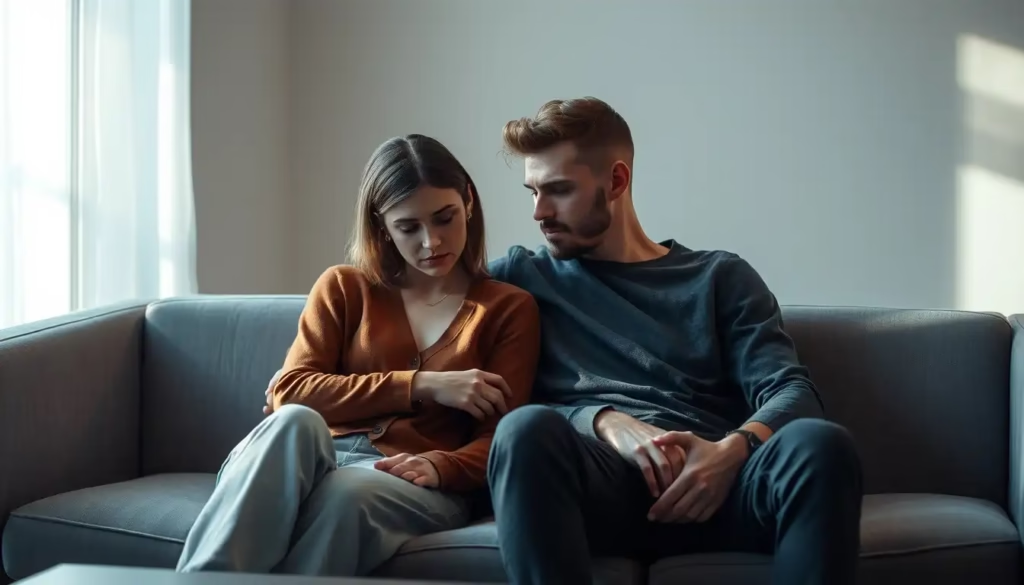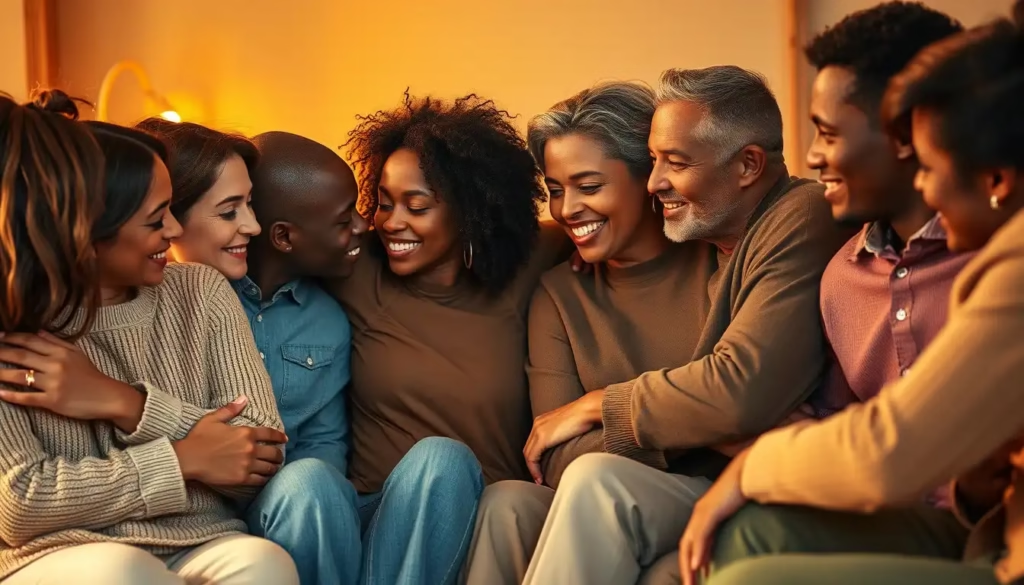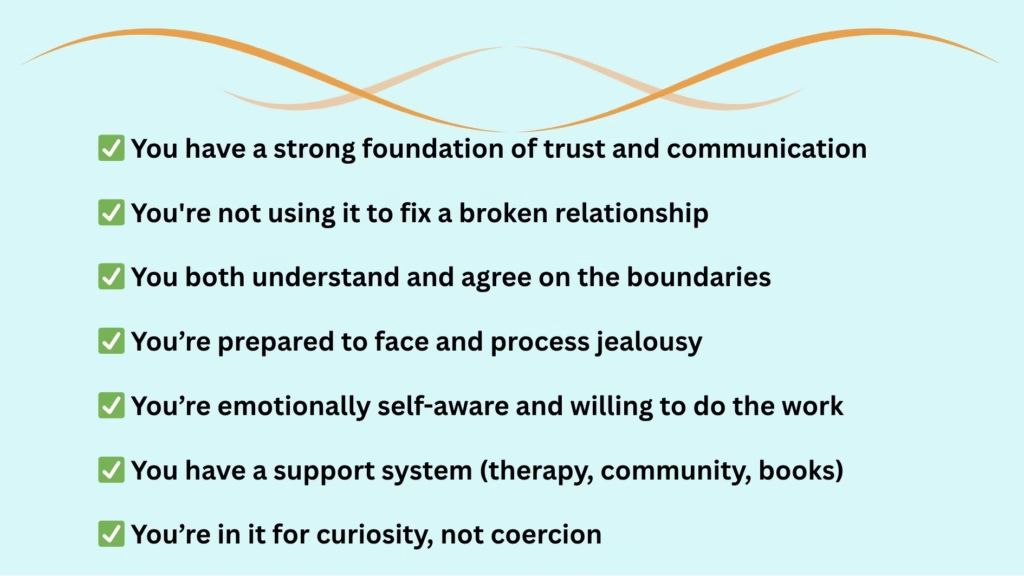For hundreds of couples who are attempting to push the boundaries of love and loyalty, open marriage is more than simply a popular topic on contemporary relationship blogs. greater freedom, greater honesty, and more discovery sounds freeing. However, beneath the glossy exterior is a complex web of feelings, including bewilderment, growth, excitement, fear, envy, and even sadness. Using personal accounts, professional guidance, and startling study findings, this piece explores the human side of open marriage. Prepare yourself for an intimate, sincere, and difficult voyage into the intricacies of limitless love.

🔥 What Is Open Marriage, Really?
In its most basic definition, an open marriage is a committed partnership in which both spouses freely and voluntarily choose to pursue romantic or sexual relationships outside of their primary relationship. But unlike a casual fling or cheating, open marriage is rooted in ethical non-monogamy and mutual respect.
“It’s not about having more sex. It’s about having more honesty.” — Dr. Zhana Vrangalova, sex researcher and non-monogamy expert
💔 Why Some Couples Choose Open Marriage
The Desire for Growth and Freedom
Take Sam and Lena, a married couple from Austin. After 10 years together, they felt their spark was fading. Instead of calling it quits, they explored open marriage. For Lena, it was terrifying. For Sam, exciting. But through trial, tears, and therapy, they discovered new intimacy—not just with others, but with each other.

Emotional Needs That One Person Can’t Meet
Open marriage recognizes that no single person can fulfill all emotional, physical, and intellectual needs. It challenges the idea that “you complete me” is sustainable long-term.
🧠 The Psychology Behind Open Marriage
Recent Research Findings
A 2021 study from the Journal of Sex Research found that couples in consensually non-monogamous (CNM) relationships reported higher levels of trust and communication than their monogamous counterparts. Read full study here
Another study by the Kinsey Institute noted that 1 in 5 Americans have engaged in some form of ethical non-monogamy at some point in their lives.
Attachment Styles Matter
According to therapist Jessica Fern, author of Polysecure, your attachment style—secure, anxious, avoidant—can deeply impact how you navigate open marriage. For example, someone with an anxious style may struggle more with jealousy and insecurity.
⚖️ Open Marriage vs. Monogamy: A Quick Comparison
| Aspect | Open Marriage | Monogamy |
|---|---|---|
| Commitment | Emotional, primary partnership | Exclusive emotional and sexual commitment |
| Communication Required | Constant, deep, transparent | Essential, but often taken for granted |
| Jealousy | Addressed openly, processed together | Often suppressed or avoided |
| Growth Opportunities | High (new experiences, self-awareness) | Stable (familiarity and routine) |
| Risk Factor | Emotional imbalance, boundary violations | Complacency, unmet desires |
📋 Checklist: Are You Ready for an Open Marriage?
🧑⚕️ Expert Opinions and Interviews
“Open marriage isn’t for everyone. But for some, it’s a deeply intentional and loving way to honor each other’s needs.”
— Dr. Tammy Nelson, author of Open Monogamy
Dr. Nelson’s Website
“Think of it like building a new kind of relationship architecture—you need blueprints, tools, and regular inspections.”
— Esther Perel, psychotherapist and renowned relationship expert
Esther Perel’s Podcast
🧬 Real-Life Case Studies
Case 1: “We Almost Divorced—Then Tried an Open Marriage”
Nina and Ray were on the verge of separation after 12 years. With the help of couples therapy, they entered an open marriage agreement for six months. They dated others, shared their experiences, and reignited their own passion in unexpected ways.
Case 2: “Open Marriage Broke Us”
Chris and Dani jumped into open marriage after hearing it worked for friends. They skipped the hard conversations. Within months, jealousy turned toxic. “We didn’t break up because of other people,” Dani says. “We broke up because we didn’t know ourselves or each other.”
💬 Real Talk: Emotional Challenges You’ll Face
-
-
Jealousy isn’t a sign of weakness—it’s a call for attention or reassurance.
-
Feeling insecure? Totally normal. Your brain wants to protect your bond.
-
Communication is your lifeline—talk more than feels necessary.
-
Don’t compare—every person, every relationship is unique.
-
🧠 Special Advice Just for You
Before you open your marriage, open your heart. Do the internal work. Ask:
-
-
“What do I really want?”
-
“Am I doing this for myself or for my partner?”
-
“Can I love without possession?”
-
The answers might change your life.
💡 Final Thoughts
Open marriage is not a free-for-all or a panacea. It’s a really intimate, emotional, and purposeful journey that can result in either significant suffering or amazing growth. It requires introspection, resiliency, and radical honesty, just like any significant life decision. It’s about loving differently, not about loving less.
Don’t hurry if your heart is saying “maybe.” Study up. Speak. Feel. And know that your relationship is legitimate, no matter how it develops.
💬 Call to Action
Have you thought about or gone through an open marriage? Post your ideas or anecdote in the comments section. Let’s create an environment for caring, inquisitive, and nonjudgmental dialogue.
📧 Subscribe to our newsletter for more insights on modern love and relationships.
🙋♀️ FAQs : Open Marriage
Q1.Is open marriage the same as polyamory?
No. Open marriage typically involves a primary committed relationship with agreed-upon outside experiences. Polyamory often includes multiple loving relationships with equal emotional weight.
Q2.Can an open marriage save a failing relationship?
Not usually. It might expose deeper issues instead of healing them. It’s better to fix the foundation first.
Q3.How do we handle jealousy in an open marriage?
Talk about it openly. Use it as a tool to understand your insecurities, needs, and boundaries. Therapy can help.
Q4.Are open marriages legal?
Yes. They are legally recognized like monogamous marriages. However, legal systems don’t currently recognize multiple spouses.
Q5.What are common boundaries in open marriages?
Time limits, emotional exclusivity, safe sex practices, and full transparency are common boundaries.
Q6.How do children impact the decision to have an open marriage?
Many couples wait until children are older or keep external relationships private. Prioritizing emotional stability for kids is crucial.
Q7.Is therapy recommended before starting an open marriage?
Absolutely. A qualified sex or relationship therapist can guide conversations and reveal blind spots.
Q8.Can open marriage be one-sided?
Only with full consent. But long-term imbalance can lead to resentment. Reciprocity and fairness matter.
Q9.How do we meet like-minded people?
Through communities like Feeld, OkCupid, or local non-monogamy meetups.
Q10.What if I change my mind later?
That’s okay. Relationship agreements should evolve. Regular check-ins and honest communication can help pivot as needed.
Useful Articles :-
- Signs of Love Bombing: 7 Red Flags to Spot Manipulative Affection Early
- What Is a Situationship? 7 Unfiltered Truths About Modern Love
- 10 Signs of a Healthy Relationship: What To Look For
- Communication Skills for Couples: 7 Transformative Tips to Strengthen Your Connection
- 7 Powerful Ways to Build Healthy Relationship Boundaries for Lasting Love
- 9 Empowering Steps for Recovering from a Breakup: Heal, Grow, and Thrive
- 7 Powerful Long-Distance Relationship Advice : Tips to Keep the Spark Alive
- Jealousy in Relationships: 7 Powerful Ways to Manage the Green-Eyed Monster
- 5 Insights Into Love Languages in Relationships : Do They Really Work?
- What Does Emotional Safety In Relationships? 7 Biblical Keys to Building Trust and Intimacy
